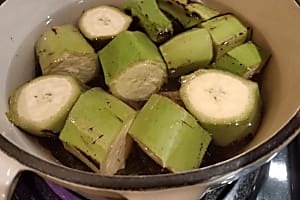When Vivek G, an MSW student from Sree Narayana Guru College passed out of college, he had a mission- to revive the traditional rural dances and music of Tamil Nadu. He along with a bunch of his classmates went on to specialize in different art forms- veethi naadagam (
street play), silambattam, urumi, pambai udukkai, thavil, Nashik dhol, karagatttam,
parai attam, kaavadi aattam, kummi attam and urumi aattam to name a few. After training aspiring youngsters in the folk art for eight years, these students finally decided to name their group
Ayudham Kalaigalin Sangamam.
Vivek G, the brain behind the group, says, "After completing our studies, we had started performing regularly on stage. We were often referred to as Vivek's team or Bala's team. We wanted people to recognize our work and remember us. Art has always been the voice of the society. And, since we were teaching many forms of art under one roof, we came upon the name Ayudham Kalaigalin Sangamam."
On weekends, Vivek and his team teaches folk art to children free of cost at one of the Anganwadis of a corporation school in KK Pudur. "When I learnt
Silambam from my master, he didn't take a single penny from me. I wanted to follow suit. On weekdays, one of our friends, Shankar Narayan, conducts free tuition for school children in the evening. On weekends, we teach them folk art. When students approach us, we just ask them to perform. We don't see who performs well. All that matters is interest in the art. At times, we even practise at mid night. It's fun when children dance to the tunes of the music. We just ensure the music is low," says Vivek.
Balamurugan P, who specializes in Parai Attam, tells us that he had decided right back in college that he will do his best to propagate folk art. "In college, we realized that most of the students performed to film music. Some of them had hardly heard of our traditional dances and music. We had made up our mind at that time. Since none of us came from a musical background, we started learning these art forms. We gradually started performing on stage as well." Surya M, who specializes in Silambam says that it was disappointing to see many sub-standard stage performances. "Some of our students started their own group after learning from us two days. Art shouldn't work that way. One needs to learn an art form and all its nuances and treat it with respect."
Till date, these youngsters have trained more than 150 students. "Many of our students have even given stage performances. We have now started travelling across the state as part of the awareness drive. We have performed in Villupuram, Cuddalore, Pollachi and Trichy as well." The group recently conducted their first large-scale training in Parai Attam in the city.
The journey, however, has not been a cakewalk for these youngsters. "Since we conduct training free of cost, it's a great challenge preserving our instruments and buying new ones. My parents think I am wasting my time performing street play and keep advising me to get a 'real job'. It's a challenge convincing them every time before coming to the class. And, it's a bigger challenge for us to take this mission forward. We have been doing part-time jobs to keep the task going," says Vivek.
But, the bigger challenge, according to the youngsters is the way they are treated when they perform on stage. "Our society had once identified certain instruments and dance forms with certain sections of the society. Even today, when we perform at villages, the first question they ask is which community we belong to. We strongly believe that all kind of art forms should be treated with equal respect. Moreover, rural folk artists hardly get their due respect. Only when we tell them that we are post-graduates and that we have been striving hard to revive these art forms, do they treat us with respect. They hardly understand why we are doing this for a living. The situation is comparatively better in the cities. We hope more youngsters understand the need to preserve our art form and come forward to learn in the future," sums up Vivek.






